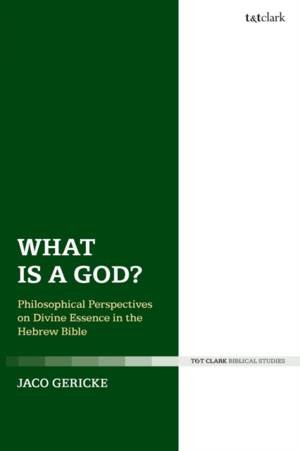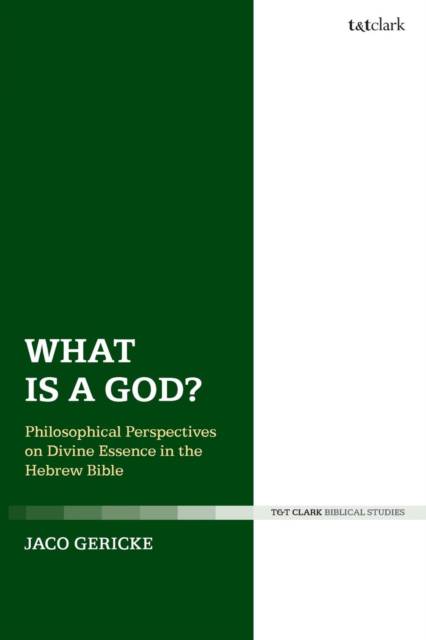
- Afhalen na 1 uur in een winkel met voorraad
- Gratis thuislevering in België vanaf € 30
- Ruim aanbod met 7 miljoen producten
- Afhalen na 1 uur in een winkel met voorraad
- Gratis thuislevering in België vanaf € 30
- Ruim aanbod met 7 miljoen producten
Zoeken
What Is a God?
Philosophical Perspectives on Divine Essence in the Hebrew Bible
Jaco Gericke
Paperback | Engels
€ 83,45
+ 166 punten
Uitvoering
Omschrijving
In this book Jaco Gericke is concerned with different ways of approaching the question of what, according to the Hebrew Bible, a god was assumed to be. As a supplement to the tradition of predominantly linguistic, historical, literary, comparative, social-scientific and related ways of looking at the research problem, Gericke offers a variety of experimental philosophical perspectives that aim to take a step back from the scholarly discussion as it has unfolded hitherto in order to provide a new type of worry when looking at the riddle of what the biblical texts assumed made a god divine.
Consisting of a brief history of philosophical interpretations of the concepts of whatness and essence from Socrates to Derrida, the relevant ideas are adapted and reapplied to look at some interesting metaphysical oddities arising from generic uses of elohim/el/eloah as common noun in the Hebrew Bible. As such the study seeks to be a prolegomenon to all future research in that, instead of answering the question regarding a supposed nature of divinity, it aims to complicate it beyond expectation. In this way a case is made for a more nuanced and indeterminate manner of constructing the problem of what it meant to call something a god.Specificaties
Betrokkenen
- Auteur(s):
- Uitgeverij:
Inhoud
- Aantal bladzijden:
- 176
- Taal:
- Engels
Eigenschappen
- Productcode (EAN):
- 9780567683595
- Verschijningsdatum:
- 26/07/2018
- Uitvoering:
- Paperback
- Formaat:
- Trade paperback (VS)
- Afmetingen:
- 156 mm x 234 mm
- Gewicht:
- 272 g

Alleen bij Standaard Boekhandel
+ 166 punten op je klantenkaart van Standaard Boekhandel
Beoordelingen
We publiceren alleen reviews die voldoen aan de voorwaarden voor reviews. Bekijk onze voorwaarden voor reviews.







